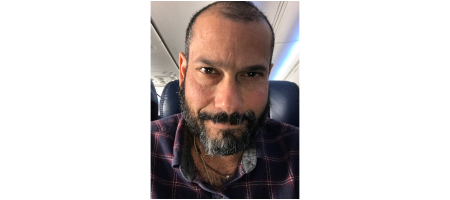WSN: Widower, Wounded, Warrior, Waking and Walking
By Jeff Ziegler
This subject matter has been doing the rounds on Facebook of late. But it is relevant to what I want to address in this week’s post.
It starts like this: “In the Lakota tradition, a person who is grieving is considered most waken, most holy.”
It is not an alien concept. In many religions and belief systems (Judaism, Hinduism, Buddhism, etc.), the bereaved are held in high regard and “revered” for a certain length of time, but what happens when that time is “over?”
The same Facebook post about the Lakota Tradition continues by saying, “There’s a sense that when the sudden lightning of loss strikes someone, he or she stands on the threshold of the spirit world. The prayers of those who grieve are considered especially strong, and it is proper to ask them for their help.”
What most people, especially non-widows, will typically ask of us is how they can help us. And we usually don’t have the clarity to answer, so we end up with yet another casserole.
But if you read my last post, I specifically talked about asking for help. So, why would a Native tradition turn that idea completely on its head and dictate that we (as widows and widowers) are the ones that others turn to in times of their need while we are grieving?
The answer isn’t straightforward, but belief systems are robust. We are raised to believe in certain things. So, I ask, does that mean we as the bereaved have some unique channel, an open line, to the hereafter when our person dies? While we sit in the throes of grief, do we have some acute superpower that is effectively a hotline to the creator/universe/spirit that created us for a brief time? If so, when does that end? When do we stop having this superpower?
The Facebook post ends like this: “You might recall what it’s like to be with someone who has grieved deeply. The person has no layer of protection; nothing left to defend. The mystery is looking out through that person’s eyes. He or she has accepted the reality of loss. They have stopped clinging to the past or grasping at the future. In the groundless openness of sorrow, there is a wholeness of presence and a pearl of deep natural wisdom.”
The thing is, I believe we all have this superpower and can access it at any time. What happens in times of deep grief is that we allow our true essence, our inner core nakedness, vulnerability, and openness to come out. We strip away all the layers. We lose the ego, and bravado falls away as we reach deep inside to bear witness to our mortality for a season. For some of us, this never leaves after our loss. For others, the superpower is lost over time; it wanes into a capacity to simply identify our grief feelings.
In my own life and practice, I have lost then rediscovered this superpower. It took a lot of hard work because my ego built up so many walls and roadblocks to protect me from feeling the deepness of my grief. It stopped me from truly accepting my mortality (that Suzanne’s death showed me)—to the point where it almost cost me everything!
What I realize now is that by genuinely accepting the ability to commune with my feelings and the grief associated with Suzanne’s death. I can now reopen the channel to the great creator, which helps me be at peace (with a sense of calmness and knowing that allows me to remain open to all possibilities in this life). This evolution of mine will enable me to act as a source to help others in their need.


Leave a comment